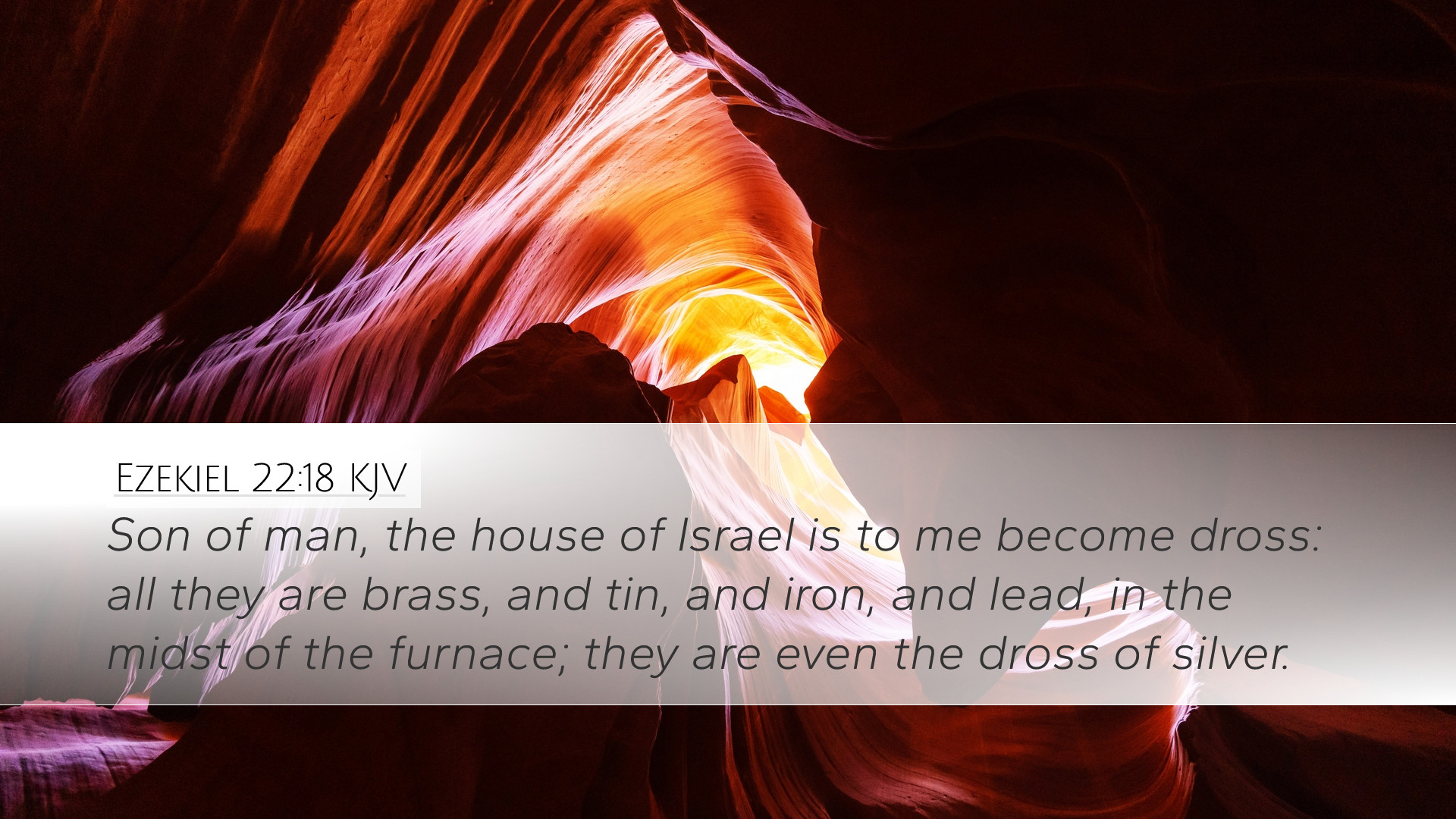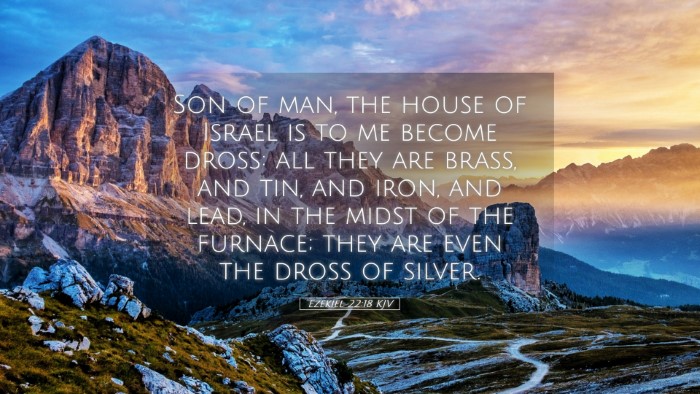Bible Commentary on Ezekiel 22:18
Verse Context: Ezekiel 22:18 states, “Son of man, the house of Israel is to me become dross: all they are brass, and tin, and iron, and lead, in the midst of the furnace; they are even the dross of silver.” This verse occurs within a passage where God, through the prophet Ezekiel, condemns Jerusalem for its unfaithfulness and moral corruption.
Exegesis
The prophet Ezekiel uses vivid imagery to describe the moral and spiritual state of Israel. The metaphor of dross represents impurities that surface during the refining of metals, indicating that the people of Israel have become worthless due to their iniquities. They have strayed from God and have corrupted themselves, reflecting a disdain for their covenant with Him.
Insights from Public Domain Commentaries
Matthew Henry's Commentary
Matthew Henry underscores that the term "dross" communicates a significant disappointment. He notes that just as dross is a product of the refining process, a metaphor for trials and tribulations, the people of Israel have failed to come forth as precious metals. Instead, they have become a detestable substance in God’s sight. Henry points out that this is a call to repentance as God seeks those who will return to Him in faith and purity.
Albert Barnes' Notes on the Bible
Albert Barnes provides an analysis of the materials mentioned: brass, tin, iron, and lead. He elaborates on their properties, highlighting that each material signifies a different aspect of Israel’s decay. Barnes explains that dross, being the result of a failing process, symbolizes the worthlessness of Israel's actions before God. He calls attention to the furnace as a place of judgment, suggesting that the surrounding circumstances in Israel were intentionally used by God as cleansing agents meant to refine His people, not to destroy them.
Adam Clarke's Commentary
Adam Clarke brings a historical perspective, describing the significance of the metals used in the verse. He suggests that each metal represents different nations and influences that impacted Israel negatively. Clarke explores the sinful actions of Israel that resulted in divine anger and judgment. He emphasizes that this passage delineates not only condemnation but also a prophetic opportunity for renewal. Clarke believes that the message is ultimately redemptive, as the call to repentance and holiness is a promise of restoration.
Theological Implications
This verse compels readers to reflect on the purity required in their walk with God. The symbolism of metal refining serves as a powerful theological reminder that God desires a holy and devoted people. The divine judgment in Ezekiel’s message illustrates that God does not simply abandon His people in their failure; instead, He seeks to purify and redeem through trials and tribulations.
Applications for Today’s Believer
For pastors, students, and theologians, Ezekiel 22:18 presents a call to self-examination. It urges the community of believers to assess the impurities in their lives and congregations:
- Pursuit of Holiness: The church is reminded to prioritize purity and righteousness, aligning with God's standards rather than societal norms.
- Understanding Judgment: Recognizing the purpose behind divine judgment can help in understanding the trials faced in both personal and corporate spirituality.
- Opportunity for Restoration: Emphasizing that while judgment is a serious theme, it is also an opportunity for repentance and renewal, where God is always ready to restore and redeem His people.
Conclusion
In conclusion, Ezekiel 22:18 serves as a profound reminder of the consequences of spiritual decay while simultaneously offering hope in the character of God. The layers of interpretation from public domain commentaries provide a rich tapestry of understanding that is invaluable for pastors, students, and scholars alike. As we reflect on this verse, may we seek to be refined through God's purifying fire, emerging as vessels fit for His service.


